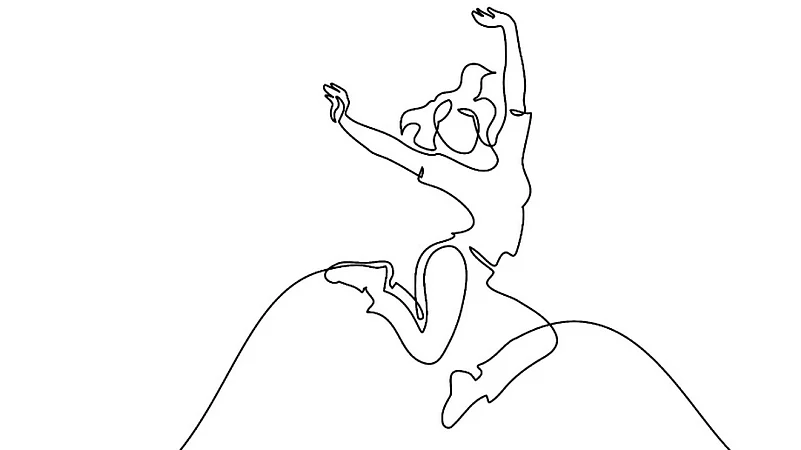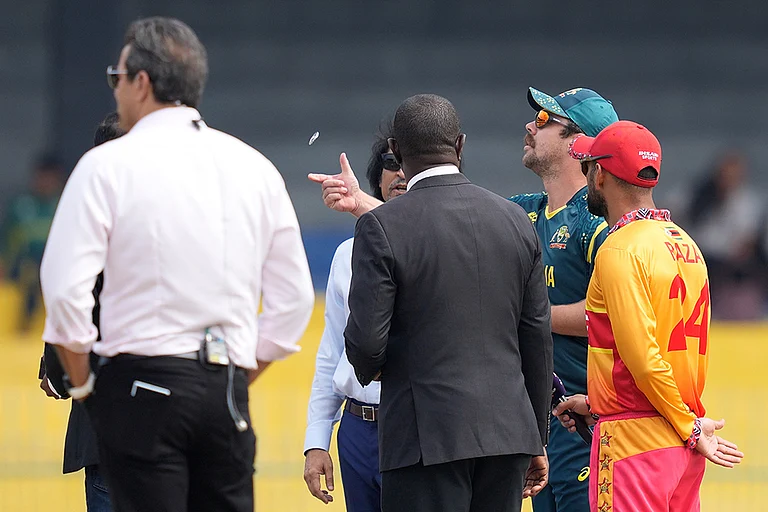After a whirlwind romance, Sangeeta Das decided to finally settle down with the love of her life at the age of 35. Married life was bliss. In some ways, nothing had changed. Her husband, a biker, would take her on long adventurous rides. They would explore new places and experiences together. In fact, their honeymoon was a bike ride from Delhi to Goa. Married life, in many ways, was just an extension of a blissful romance. Until it wasn’t. The early sign of its approaching end manifested in bickering and disagreements. The final nail in the coffin of their relationship was their disagreement over whether they wanted to have children. Sangeeta did. Her husband didn’t. So, a decade and a half later, the couple decided to call it quits and separated. While their divorce was in the process, her husband fell ill, and eventually passed away.
At almost 50, Sangeeta was single. While the circumstances that led to this were unfortunate, what came after was a sense of relief, freedom, and a refined idea of love. “Our love wasn’t a love which did not have trouble or a love that was unconditional. The fact that our marriage came to an end or that we decided to part ways was because there were situations where we couldn’t live under the same roof. We did love each other as human beings, but despite the love, we realised that our paths were different, our dreams and goals were different… our levels of understanding values, morals, principles were different. Our ideas of family and personal space were different. So, I had to decide whether I wanted to live with him and hate him, or live away from him and continue to love him. We decided to take a break, but we never expected that the break would start feeling so easy for us. We started enjoying that break too much, and we did not want to get back together anymore. That is when I realised that it was not sinful or shameful to admit that one’s love can die,” she says.
For years, women have been made to believe that the road to finding true happiness is that of love, a road which would be full of compromises and sacrifices — of one’s identity and dreams. That is the price that women have had to pay for love, and how. Women have given up on their careers, and redirected the focus of their lives towards running their households and rearing children, all in the name of love. But, the times are a changin’ and so is women’s idea of love. As more women are finding social and financial independence, their criteria for the ideal partner to love is narrowing down. More women are now becoming increasingly aware of what and who they want. They are reevaluating the requisites to fall and be in love. When looking for love, they are not just seeking a partner who is financially stable, or who can take care of them, but also someone who treats them as an equal and offers emotional and intellectual compatibility.
In Jane Austen’s Pride and Prejudice, Elizabeth Bennett declares she would not marry for money alone; her partner must have qualities like kindness, mutual respect, and intelligence. It is an anomaly in a plot where marriage is driven primarily by financial prospects. It appears as if that anomaly is finally becoming a norm now. As a result, the pool of suitable matches in a society that is heavily driven by patriarchal norms is shrinking — a direct outcome of this is an expanding population of single women. According to the Census 2011, the number of single women in the country increased from 51.2 million in 2001 to 71.4 million in 2011, indicating that women are discovering their own agency over their lives; they are refusing to settle for someone just because that is how it has been for centuries.
Mona Dutta is one of them. A year away from turning 50, she is a successful corporate consultant, with a penchant for travel and photography. She never married. Of course, she never set out with a goal of hating love. In fact, she fell in love several times, quite passionately, only to find herself cheated, and heartbroken. Her responsibilities on the home front didn’t make being part of a romantic relationship any easier. Alone for several years, she has been taking care of her parents and several of her childless aunts and uncles.
Through her twenties and early thirties, Mona had invested emotionally in a few relationships, none of which, to her disappointment, lasted. In fact, one of her relationships that continued for nearly five years left her feeling lost and disoriented when it ended. It was this heartbreak that changed the course of her life: it led her to a path of spiritual awakening and enabled her to discover the joys of self-love. “There was a time in my late thirties when I was deeply in love with a man and when that didn’t work out, I went through a lot of grief — it affected my health. I was vice-president in my company at the time, but I had to leave it all because I fell ill and also because it was just too much to process. That is when I began my spiritual journey through a community called ‘Joyous Women’. This path is of the divine feminine. One of the things that we did there was that we got married to ourselves in a beautiful self-marriage ceremony. And it’s been very, very fulfilling. I couldn’t compare it to conventional marriage which is more of a commercial thing that we do to show others. It is based on the concept of ‘Ardhanarishvara;’ it is not about the gender, but the feminine and masculine elements within us, and when those are in balance, we are a complete and whole person. The self-marriage was about the feminine in me marrying the masculine in me,” she explains. Mona feels complete. Though she is still looking for love, it is not because she needs someone to complete her. Instead, she is looking for someone to share the journey of her life with.
For single women, life is no longer a puzzle with missing pieces. It is an independent journey, and the person they love needs to have a journey that runs parallel to theirs. However, it is not that women no longer desire the comfort of companionship. What they are doing more is contemplating whether it is worth giving up on freedom and independence by compromising one’s own individuality. “You miss having somebody at home who waits for you to come back each night. It’s terrible to wake up in the morning and to drink coffee alone. You miss the human company. Sometimes, you miss the silence you can share with someone — the comfortable silence while being in the same house, but in a different room. But you also get used to it,” says Noor Enayat, a queer woman living in Delhi. Would somebody want to be in a relationship just because he or she misses these things? Noor says it has to do with one’s priority. “It’s important to understand that if you’re missing a person or the idea of a person, these things can technically be fulfilled by anybody,” she says. Noor became single three years back after her last relationship did not work out due to a “disconnect” over what the two partners wanted. “I think two people have to be in the same place mentally. One is not looking anymore at something wherein you move in during the first few months of seeing each other, and then you get married. That’s not how it works, especially in queer relationships,” she says. Elaborating on her idea of love and companionship, she says that her ideal partner would be someone with whom she can share her every day — and not just have a serious, long-drawn intellectual or romantic conversation.
Having discovered the joys of being self-reliant, many of these women, across age groups, have become set in their ways. They want to make their bed in a certain way, they follow a rule in their kitchen, they have their own timings through the day, and altering all of this for a person who may or may not be forever is something that is no longer up for discussion. It is a risk they do not want to take. Though Sangeeta remembers her love story with her former husband quite fondly, she says the whole idea of everlasting love is a sham that we feed ourselves and then we keep bending rules to include that person in our life or to include ourselves into their lives, ultimately only to get at each other’s throats. “This is because we have never been told that love also comes with an expiry date. There might be nostalgia for the good times spent together, but love wears off,” she says.
For some, the end of romance does not necessarily mean the end of a relationship. Noor shares how she continues to be friends with a former partner even though the relationship ended several years ago. “We lived together for four years. And we continue to be good friends. Because that was a relationship that was very equal. I think that becomes very important. For me, a relationship is a 50-50 divide. If I take four steps you take four steps. That has always been very essential to the idea of a relationship. That has been the defining factor for me,” she says.
Even for younger women like Tanyaa Raturi, the idea of love has changed dramatically since the first time she fell in love at the age of 17. “Your idea of love corresponds to the life experiences you have had. At 20, I had lived most of my life in a small town. The idea of a partner came from watching certain types of movies. It was a very heteronormative patriarchal idea: My boyfriend and I would go to malls together and would celebrate Valentine’s Day. As I grew older, it changed,” says Tanyaa, 25. A reflective person, she believes that a certain level of self-reflection is required. Today, what she looks for in a partner has also changed because she looked back at why the relationships she had been in didn’t work. “Now, I feel that a lot of things that I needed from a partner, I can acquire myself, like intellectual stimulation, which is very important for me. I figured I was enough for this,” she says. Tanyaa no longer seeks love from a romantic partner alone. She also seeks it in a set of steady friends — people who have been there for her through thick and thin even as romantic partners have come and gone. Love, to her, now means stability.


























